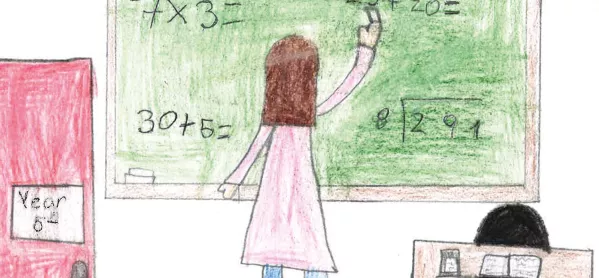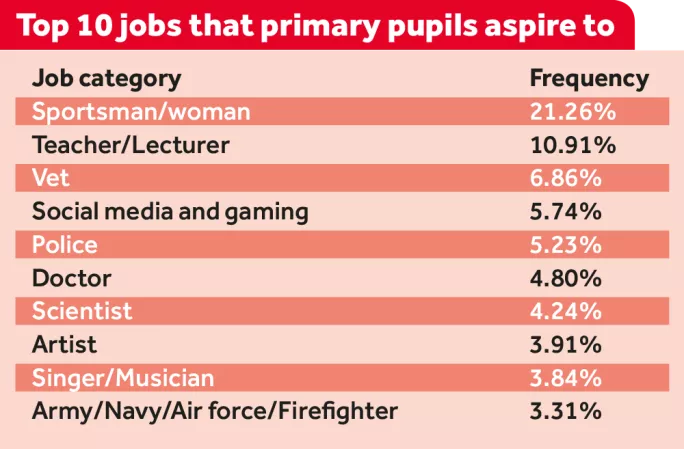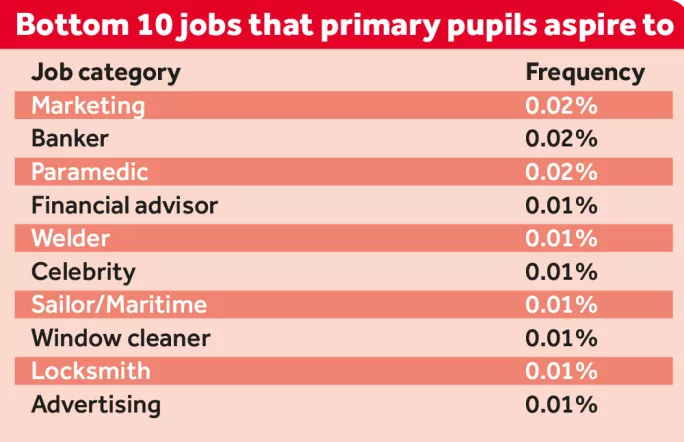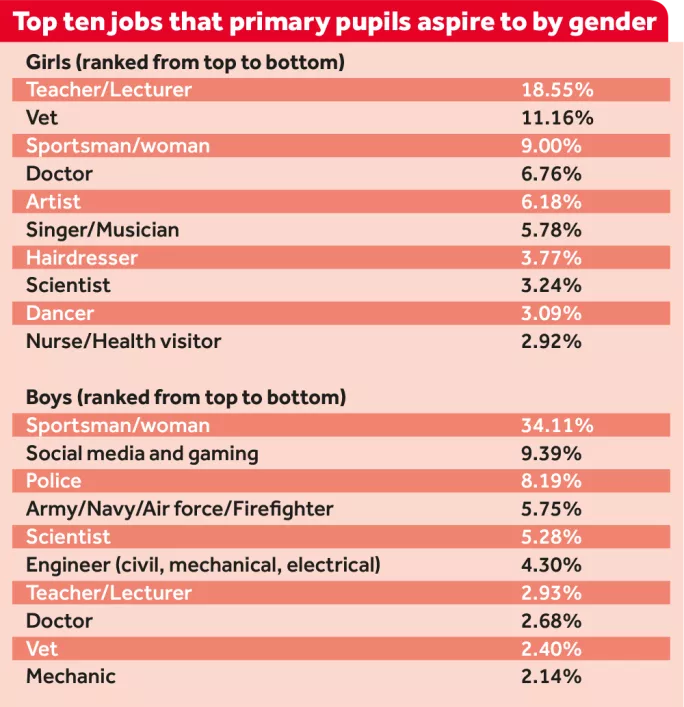The top job that UK primary pupils aspire to is “sportsperson”, with “teacher” being the second most popular, according to new research, released today.
The Drawing the Future project asked more than 13,000 pupils between the ages of 7 and 11 to draw a picture of the job they wanted to do when they grew up, and to say whether they knew anyone who did that job. Data on the pupils and the schools was also collected - for example, the percentage of students eligible for free school meals (FSM).
The most popular job was “sportsman/woman”, chosen by just over one fifth (21.26) per cent of the pupils who took part, while “teacher/lecturer” was chosen by 10.91 per cent. At the other end of the scale, jobs in “advertising” were the least popular, being selected by just 0.01 per cent of pupils.
The charity Education and Employers, which conducted the research in collaboration with Tes, the NAHT headteachers’ union and the UCL Institute of Education, with the support of the Organisation for Economic Cooperation and Development (OECD), also asked pupils what their favourite school subject was, and found that there was little correlation between the jobs children chose and the subjects they preferred.
Maths ‘top subject’
Maths was ranked as the top subject, chosen by 33 per cent of pupils, followed by art and design, selected by 22 per cent. PE came in third, with just 16 per cent. This suggests that children may not see a clear connection between what they study in lessons and the careers that will be open to them in future, perhaps highlighting an issue with existing careers education.
Splitting the results by gender reveals another potential issue. According to the data, gender stereotyping around careers is entrenched from the age of 7. “Hairdresser”, “nurse”, “dancer” and “fashion designer” all feature highly in girls’ career choices, while boys favour jobs such as “mechanic”, “engineer”, “airline pilot” and roles in the armed forces.
Nick Chambers, chief executive of Education and Employers, believes that the results provide an argument for improving the visibility of a diverse range of careers at primary level.
“This research holds messages for schools about the importance of getting kids to meet a wide range of volunteers from the world of work in order to tackle gender stereotyping from an early age and to broaden their horizons,” he says.
This is an edited article from the 19 January edition of Tes. Subscribers can read the full article here. To subscribe, click here. This week’s Tes magazine is available in all good newsagents. To download the digital edition, Android users can click here and iOS users can click here
Want to keep up with the latest education news and opinion? Follow Tes on Twitter and Instagram and like Tes on Facebook







